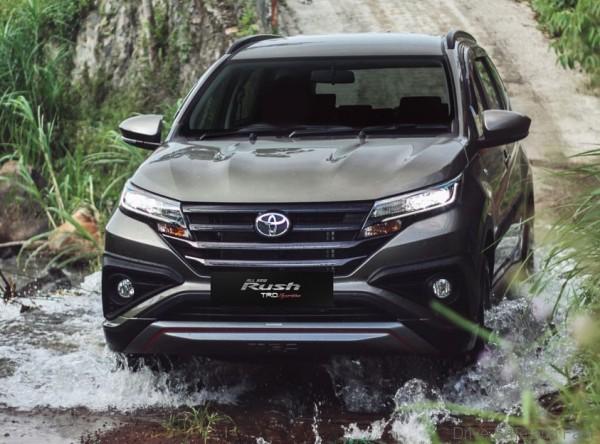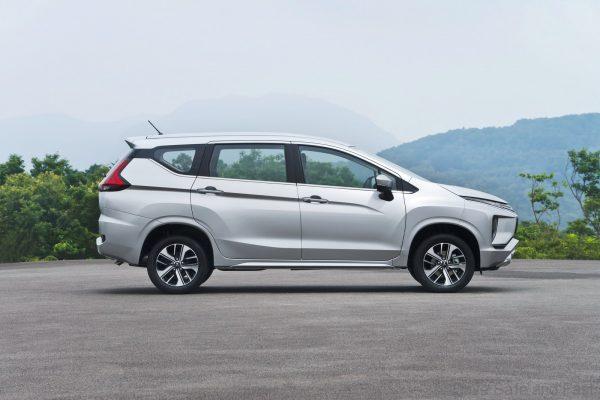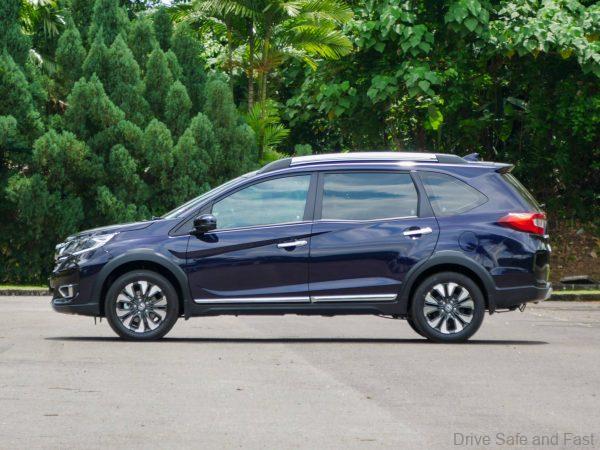A year-on-year jump of some in car sales by a huge margin in April 2021.
In ASEAN it is not just Malaysians who are buying up luxury vehicles in the past year without thinking twice, it is also happening in Indonesia. Many Malaysian luxury car buyers have been enjoying the lucrative SST exemption incentive which has just been extended by the government this week to December 2021.

In Malaysia, the SST exemption also is applicable to lower priced vehicles, but the savings are small in comparison with how much is being saved with luxury cars, which means, the rich Malaysian gets to save even more money on their new vehicle purchase, while the lower income Malaysian gets a small saving.
Let’s get back to Indonesia where sales of four-wheeled-vehicles in April 2021 had experienced a staggering spike of 227 percent year-on-year in April 2021, as a result of the government’s implementation of the sales tax incentive on luxury goods.

Now to those unfamiliar with what is currently going on across the Straits of Melaka, the Indonesian government has recently began introducing an incentive scheme on the sales tax for the purchase of luxury goods. All of which is in the attempt to reignite the local auto industry, which was among the hardest hit during the ongoing Covid-19 pandemic.

Known locally as the PPnBM, the Indonesian government is currently providing the incentive with a 100 percent discount offered in the March-May 2021 period, before dropping to a 50 percent discount in the June-August period and a 25 percent discount in the September-December period. This allows the many rich Indonesians to enjoy great savings on a new 4×4.
The types of cars eligible for this tax break initially was only limited to sedans and two-wheel drive cars with engine capacity below 1,500 cc, but has since been expanded to include four-wheel drive models and cars of up to 2,500 ccengine displacement that are manufactured with at least 60 percent domestically-sourced components.
Speaking more about this effective automotive purchasing incentive, the Association of Indonesian Automotive Manufacturers (Gaikindo) has commended the government’s decision as it has been proven effective thus far in bringing Indonesians back into the showrooms and buying new cars. Total wholesale car sales over there stands at 265,934 units in the January-April 2021 period, which is some 8.65 percent higher than the 244,758 units of the same period of 2020.

Data from Bank Indonesia, its central bank, also backs up the willingness of buyers in splashing out on a new car, reporting that the 55 percent rate of the purchasing manager index on the car purchases over there currently during the pandemic was higher than the 51 percent figure before the outbreak.
President Joko Widodo has stated during his opening of an Indonesia International Motor Show in Jakarta that he hopes that the government could maintain the trend in the automotive industry into the future.
The Indonesian president went on to say that the automotive sector is one of big contributors to the country’s gross domestic product, as it has a lot of supporting industries and involves small and medium scale enterprises. To that end therefore, additional stimuli has been provided, such as the elimination or reduction of cost burdens for business players, direct cash assistance for certain crew and employees as well as vaccinations for transport workers and passengers.
Before the tax incentives were introduced, auto sales in ASEAN’s most populous country and largest economy has somewhat recovered after a sharp drop at the start of the pandemic. Though it has yet to return to pre-Covid levels, as Indonesia’s auto sales in 2020 of just over 532,000 units was only around half of its 2019 total.
Research and Text by Joshua Chin


